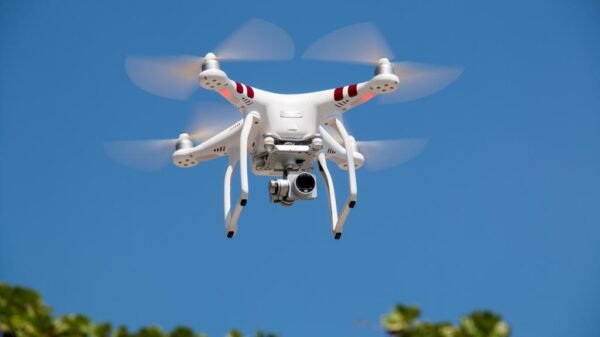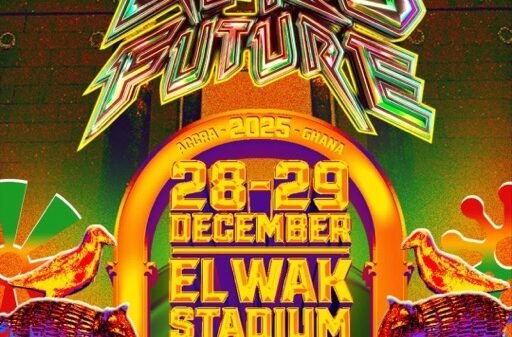Ghana is West African country that is bounded to the west by Côte d’Ivoire, the north by Burkina Faso, the east by Togo, and the south by the Gulf of Guinea. Accra serves as the nation’s capital and largest city, and it has a population of approximately 30 million. English is used as the official government language, but Twi, Ga, Dangme, Dagbani and Ewe of the many languages the country has are widely spoken.
It is known for its traditional music, dance, and textiles, in addition to its rich cultural heritage. The country is also well-known for its diverse natural landscape, which includes beaches, savannas, and rainforests.
Ghana’s economy is expanding and the political climate is relatively stable. The nation also exports a lot of cocoa and has a wide range of industries, including manufacturing, mining, and agriculture. Since the return of democracy in 1992, following a lengthy period of military rule, the nation has experienced stability.
It is a country with a diverse landscape, a growing economy, and a rich culture and history. It is a popular destination for tourists who want to see the natural beauty of West Africa and learn about the culture there.
Content
- Origin of the name Ghana
- Ghana History
- Ghana Geography and Climate
- Ghana Demographics
- Economy
- Ghana Government and Politics
- Culture
- Ghana tourism
- Ghana Entertainment industry
- Education
- Business, employment and industrial sectors
Origin of the name Ghana
The name “Ghana” is believed to have originated from the ancient Ghana Empire, which existed in what is now southern Mauritania and western Mali between the 4th and 11th centuries. The empire was known for its wealth, particularly in gold, and its powerful military.
When present-day Ghana was colonized by the British in the 19th century, they named it the Gold Coast colony, as a reflection of the gold trade that had brought European traders to the region for centuries. After gaining independence from Britain in 1957, the country officially adopted the name “Ghana” in reference to the ancient empire as a symbol of unity and national pride.
Ghana History
Brief overview of Ghana’s history, including its precolonial past, the arrival of Europeans, and the country’s journey to independence.
Ghana has a rich and complex history, dating back to pre-colonial times. The area that is now Ghana was home to a number of powerful empires, including the Ashanti Empire, which controlled much of the region from the 17th to the late 19th century. The Ashanti Empire was known for its strong central government, advanced military, and prosperous economy.
The arrival of Europeans in the late 15th century, led by the Portuguese, disrupted the political and economic stability of the region. The British established a colony in the area in the 19th century, and through a series of wars and treaties gradually took control of the Ashanti Empire and other neighboring states. The colony, known as the Gold Coast, became a major producer of cocoa, a key ingredient in chocolate, which was in high demand in Europe.
In the mid-20th century, a growing nationalist movement emerged in the Gold Coast, led by figures such as Kwame Nkrumah. This movement called for independence from British rule. In 1957, the Gold Coast became the first British colony in Africa to gain independence, and was renamed Ghana. Nkrumah became the country’s first president. Since then, Ghana has had a mixed political history, with periods of stability and democracy, and periods of coups and military rule. Despite these challenges, Ghana has remained a relatively stable democracy in Africa and has made significant economic and social progress.
Ghana Geography and Climate
Ghana is geographically bordered by Côte d’Ivoire to the west, Burkina Faso to the north, Togo to the east, and the Gulf of Guinea to the south. The total area of Ghana is 238,535 square kilometers.
The geography of Ghana can be divided into three main regions: the coastal plain, the Ashanti uplands, and the Volta Basin. The coastal plain, which stretches along the Gulf of Guinea, is a low-lying area characterized by sandy beaches, lagoons, and mangrove swamps. The Ashanti uplands, located in the central part of the country, are a hilly region that is rich in mineral resources, including gold, diamonds, and bauxite. The Volta Basin, located in the eastern part of the country, is a low-lying area that is home to the country’s largest lake, Lake Volta, and the Volta River, which is an important source of hydroelectric power.
The climate of Ghana is tropical, with a rainy season that lasts from April to November and a dry season that lasts from December to March. The average temperature in Ghana ranges from 25 to 30 degrees Celsius (77 to 86 degrees Fahrenheit). The country receives an average annual rainfall of around 1,100 millimeters (43 inches) in the south and up to 2,000 millimeters (79 inches) in the northern regions. The coastal regions are typically more humid than the inland areas.
In summary, Ghana is a country located in West Africa with diverse geographical features, from coastal plain, Ashanti uplands and Volta Basin, and a tropical climate with a rainy and dry season. This diversity in geography and climate supports the country’s agricultural and mineral resources and also affects the country’s economy and the livelihood of its people.
Ghana Demographics
As of 2021, Ghana’s population is estimated to be around 31 million people. The population growth rate is around 2.2%, making it one of the highest in Africa. The majority of the population is concentrated in the southern and coastal regions of the country, with the capital city of Accra being the most populous city.
Ghana is a diverse country with a wide range of ethnic groups. The largest ethnic group is the Akan, who make up around 45% of the population. Other major ethnic groups include the Mole-Dagbon, Ewe, Ga-Dangme, and Guan. There are also small populations of Europeans, Lebanese, and Indians.
The majority of the population in Ghana is Christian (71.2%), followed by Muslims (17.6%) and traditional beliefs (5.2%). There is also a small minority of followers of other religions such as Buddhism, Hinduism, and Sikhism.
Urbanization in Ghana has been rapidly increasing in recent years, with around 60% of the population now living in urban areas. The capital city of Accra is the most populous city in the country, followed by Kumasi, Tamale, and Sekondi-Takoradi. Urbanization has led to increased economic opportunities and improved infrastructure in urban areas, but it has also resulted in overcrowding, slums, and strain on resources.
Migration patterns in Ghana have also been affected by urbanization. Many people have migrated from rural areas to urban areas in search of better economic opportunities. Additionally, many Ghanaians have also migrated to other countries, particularly to the United Kingdom, United States, Canada, and other countries in West Africa. These migration patterns have also led to a significant diaspora population of Ghanaians abroad.
In summary, Ghana’s population is around 31 million people with a growth rate of 2.2%. The country has a diverse ethnic makeup with Akan being the largest ethnic group. The majority of the population is Christian, and the nation is experiencing a fast rate of urbanization with about 60% of the population living in urban areas. Urbanization and economic opportunities have led to migration patterns both within the country and abroad.
Economy
Ghana’s economy is primarily based on agriculture, mining, and services. The agricultural sector employs around 40% of the population and produces crops such as cocoa, palm oil, and rubber. The mining sector is focused on extracting gold, diamonds, and other minerals. The services sector, which includes tourism and finance, has been growing in recent years.
Ghana is a significant exporter of cocoa and gold, and also exports other products such as oil, timber, and fish. Its major trade partners include China, the European Union, and the United States.
In recent years, Ghana has experienced steady economic growth, with an average annual growth rate of around 4%. However, the country still faces challenges such as high levels of poverty, inequality, and unemployment. Additionally, Ghana faces challenges in the form of inadequate infrastructure, corruption, and lack of access to finance for small and medium-sized enterprises. Despite these challenges, Ghana’s government has implemented economic reform programs, such as the Ghana Shared Growth and Development Agenda, to address these issues and promote sustainable economic growth.
Ghana Government and Politics
Ghana has a presidential representative democratic republic with a multi-party system. The President of Ghana is both the head of state and the head of government, and the President is elected by popular vote for a four-year term. The President appoints a Vice President and a Council of Ministers, who make up the executive branch of government. The legislative branch is made up of a unicameral Parliament, which consists of 275 members elected by popular vote for four-year terms. The judiciary is independent and has a hierarchy of courts, including the Supreme Court, which is the highest court of appeal.
The major political parties in Ghana include the New Patriotic Party (NPP) and the National Democratic Congress (NDC). The NPP is center-right and generally supports free market policies and limited government intervention in the economy. The NDC is center-left and generally supports a more active role for government in the economy and social welfare programs.
The current political climate in Ghana is generally considered to be stable and democratic. Presidential and parliamentary elections have been held regularly and have been considered free and fair. However, there have been some incidents of political violence in the past, and there are concerns about the ongoing problem of corruption in government.
Culture
Ghana has a rich cultural heritage that includes traditional arts and crafts, music, and festivals. The traditional arts and crafts of Ghana include woodcarving, pottery, textiles, and beadwork. These crafts are often made using local materials and are deeply rooted in the country’s history and cultural traditions.
Music is also an important aspect of Ghanaian culture. The country has a vibrant music scene that includes traditional music, such as highlife and gospel, as well as contemporary music, such as hiplife and azonto. The country is also known for its drumming and dance traditions, which are often performed at festivals and ceremonies.
Ghana celebrates a number of festivals throughout the year, many of which are based on traditional religious and cultural beliefs. Some of the most popular festivals include the Homowo Festival, the Akwasidae Festival, and the Akwambo Festival.
In terms of contemporary culture, Ghana has a strong relationship with Western culture. The country has been heavily influenced by Western education, politics, and media, and as a result, many aspects of Western culture can be found in Ghana. However, Ghanaian culture remains strong and vibrant, and many Ghanaians continue to celebrate and preserve their traditional heritage.
Ghana tourism
Ghana is a country with a rich cultural heritage and diverse natural attractions that make it a popular tourist destination.
One of the main draws for tourists is the historic slave castles located along the coast. These castles, such as the Elmina Castle and the Cape Coast Castle, serve as a reminder of the country’s past and offer a unique insight into the transatlantic slave trade. Visitors can also learn about the history of the Ashanti Kingdom at the Manhyia Palace in Kumasi.
The country also boasts a variety of natural attractions, including the Kakum National Park, which is home to a canopy walkway suspended high above the rainforest floor. Visitors can also explore the Mole National Park, which is home to elephants, antelopes and other wildlife. The scenic beauty of the Volta Region, the largest man-made lake in the world, is also a popular tourist destination.
Ghana is also known for its vibrant culture and lively festivals. Visitors can experience traditional drumming and dancing at the annual Homowo Festival in Accra, and the colorful and lively Adae Festival in the Ashanti Region. Visitors can also learn about the country’s traditional customs and way of life through visits to local villages and markets.
In addition to its historical and natural attractions, Ghana is also known for its beaches. Visitors can relax on the white sandy beaches of the Western Region, or take part in water sports such as surfing and kite surfing in the Busua and Dixcove.
Overall, Ghana offers a unique and diverse tourist experience for visitors, with a mix of history, culture, and natural beauty. There are many things to do and see and it’s a great destination to visit.
Ghana Entertainment industry
Ghana’s entertainment industry is a vibrant and diverse landscape that showcases the country’s rich cultural heritage and artistic talents. From music and film to theater and comedy, there is something for everyone in Ghana’s entertainment scene.
Music is one of the most popular forms of entertainment in Ghana, with a wide range of genres represented. Highlife, a genre that originated in Ghana in the early 20th century, is a fusion of traditional West African rhythms and Western pop music. It has been a staple of the Ghanaian music scene for decades and continues to be popular to this day. Additionally, gospel, hip hop, hiplife, R&B, and dancehall are also popular genres in Ghana.
The film industry in Ghana, known as Ghallywood, has also seen significant growth in recent years. Ghanaian filmmakers have produced a number of successful movies that have been well-received both domestically and internationally. These movies often tackle important social issues and provide a unique perspective on the Ghanaian experience.
Theater and comedy are also important parts of Ghana’s entertainment industry. The National Theater of Ghana, located in Accra, is a popular venue for plays, musicals, and other performances. The theater also hosts a number of festivals and events throughout the year, including the annual National Drama Festival. Comedy is also a popular form of entertainment in Ghana, with a number of stand-up comedians and comedy groups performing regularly.
In addition to these traditional forms of entertainment, Ghana also has a growing digital entertainment industry. Many Ghanaian creators are using platforms like YouTube and TikTok to share their talents with a global audience.
Ghana’s entertainment industry is a vital part of the country’s culture and economy. It not only provides entertainment for the people of Ghana but also gives a platform for artists to showcase their talents and tell their stories. With the entertainment industry in Ghana continuing to grow and evolve, there is no doubt that it will continue to be a source of pride and inspiration for the people of Ghana and the world.
Education
Ghana’s education system is made up of pre-tertiary and tertiary education. Pre-tertiary education is divided into basic education and secondary education. Basic education is made up of Kindergarten, primary education, and Junior High School (JHS). Secondary education is made up of Senior High School (SHS) and Technical and Vocational Education (TVET). Tertiary education is made up of universities, polytechnics, and colleges of education.
The basic education system in Ghana is free and compulsory for all children between the ages of 4 and 15. The government has been working to improve the quality of basic education by providing textbooks, teachers, and other resources. The government also introduced the “Capitation Grant” which is a cash transfer to schools to support the education of children from poor households.
The Secondary education system in Ghana is also free, but not compulsory. The government has been working to improve the quality of secondary education by providing textbooks, teachers, and other resources. The government has also introduced the “Free SHS” policy which provides free secondary education to all children who pass their Basic Education Certificate Examination (BECE).
The tertiary education system in Ghana is made up of universities, polytechnics, and colleges of education. The government provides financial assistance to students through the “Tertiary Education Scholarship” scheme. The government has also introduced the “Student Loan Trust Fund” which provides loans to students who cannot afford to pay for their education.
In recent years, there has been a focus on improving the quality of education in Ghana, particularly in the areas of science, technology, engineering, and mathematics (STEM). The government has introduced the “National Science and Maths Quiz” which is a competition for secondary school students to promote the study of science and mathematics. The government has also introduced the “Teacher Professional Development” program which aims to improve the quality of teachers in the country.
Business, employment and industrial sectors
The country’s business, employment, and industry sectors have been expanding rapidly in recent years, driven by a combination of government policies, private sector investments, and increased foreign interest.
Business in Ghana has been growing steadily in recent years, with the country’s GDP increasing by an average of around 6% per year. This growth has been driven by a number of factors, including a growing population, increasing urbanization, and a growing middle class. The country’s main industries include mining, oil and gas, and agriculture, with the mining sector being the largest contributor to GDP. The mining sector is dominated by gold, which is the largest foreign exchange earner for the country. Other minerals produced in Ghana include diamonds, bauxite, and manganese.
Employment in Ghana has also been growing in recent years, with the country’s unemployment rate falling to around 4% in 2020. This growth has been driven by an increase in private sector investments and government initiatives to create jobs. The country’s main industries employ a large number of people, with agriculture being the largest employer, followed by the service sector, and industry.
The manufacturing industry in Ghana is relatively small, but it has been growing in recent years. The country’s main manufacturing industries include textiles, food processing, and construction materials. The government has also been promoting the development of the country’s small and medium-sized enterprises (SMEs) as a way to create jobs and promote economic growth.
Source: Ghanaonline.net




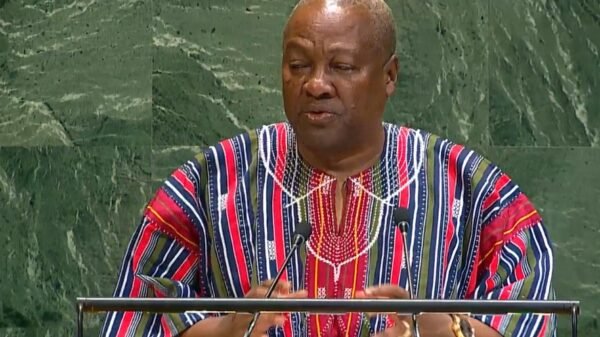
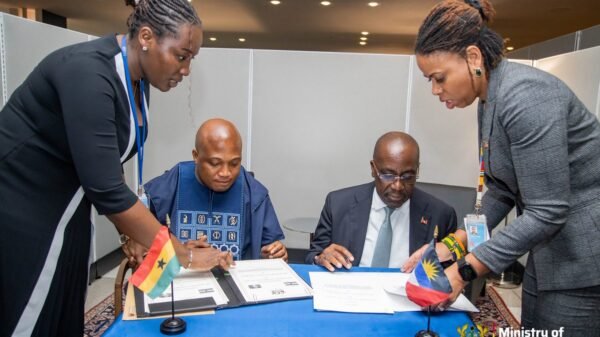
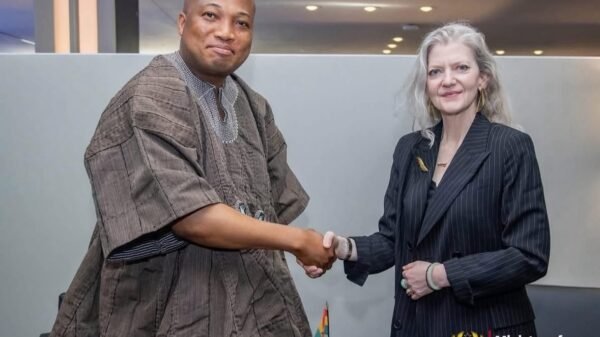
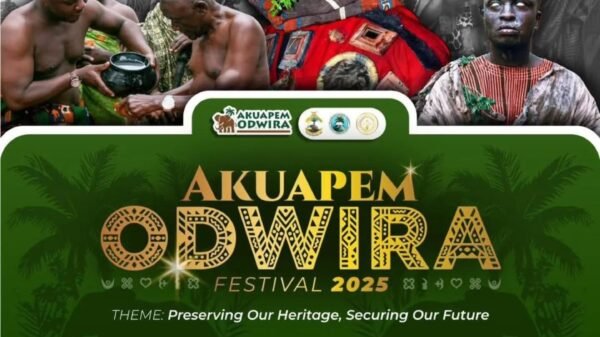
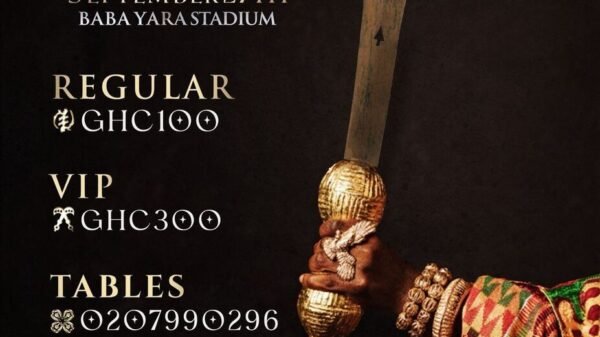







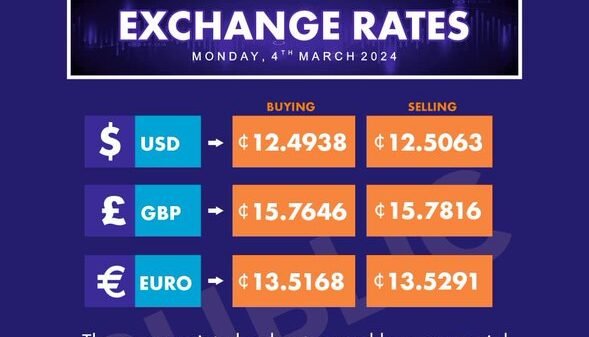
![Money Transfer Services operating in Ghana [Remittance Guide] Money Transfer Services operating in Ghana [Remittance Guide]](https://ghanaonline.net/wp-content/uploads/2023/10/omid-armin-8Nppe0yLmn8-unsplash-600x337.jpg)
